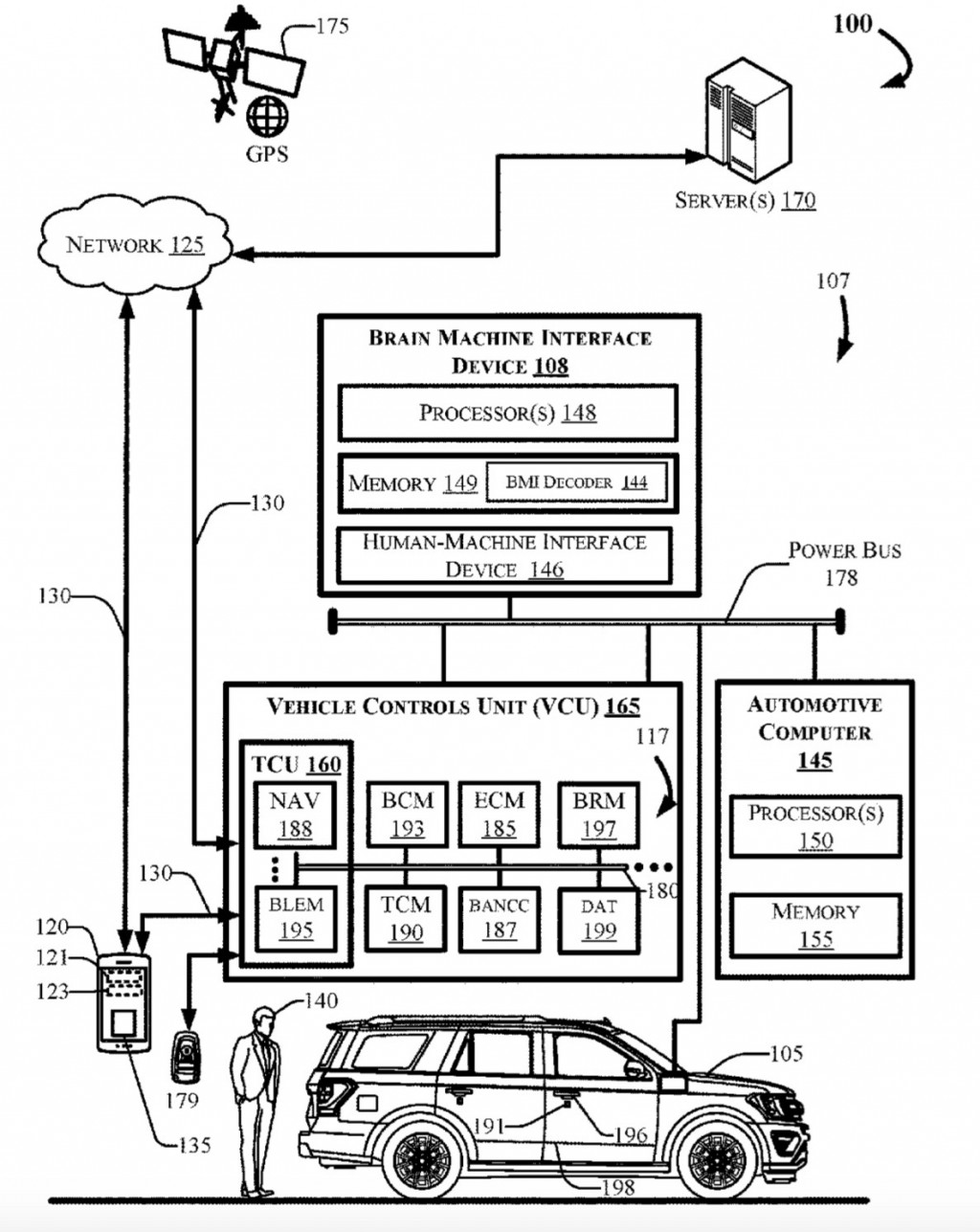Ford has filed a patent application with the United States Patent and Trademark Office (USPTO) for what the automaker calls a "brain machine interface" that can anticipate steering, accelerator, and brake inputs.
First spotted by Motor1, the application describes a way to monitor brainwave activity to predict when a driver is planning to make a control input. It would look for brainwaves that indicate a muscle movement is imminent, allowing the system to predict that, for example, the driver is planning to turn the steering wheel.
This information would then be fed into a car's driver-assist systems, which would then make adjustments accordingly. From what we can tell, the car wouldn't take over driving; it would just compliment what the human driver is already doing.

Ford brain machine interface patent image
The brain machine interface would connect to the sensors and vehicle control units most new cars already use for their driver aids. The application also describes a sensor-laden cap that drivers would wear to monitor brain activity. That seems a bit impractical.
Granted, it's unclear if technology like this will ever be available in a production car. Automakers often patent ideas they have no concrete plans to use as a way to protect intellectual property. Ford has been busy with patent applications lately. It also recently filed applications for a trisected pickup truck tailgate and an electric clutch for manual-transmission cars.
Perhaps a brain machine interface could help enhance driver-assist systems like Ford's Blue Cruise, helping to bring the tech's responses more in line with what the driver is expecting.